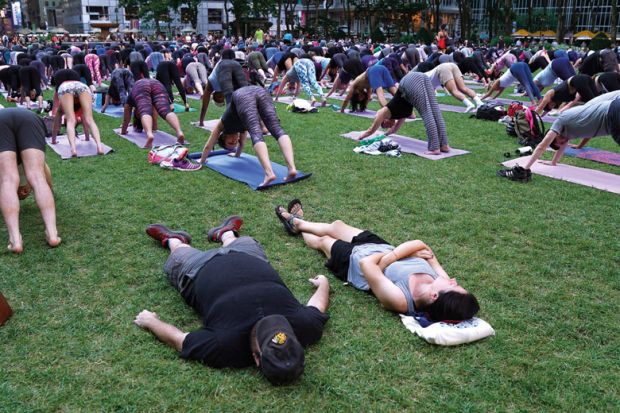US universities mull adopting New York college’s four-day week

Source: Getty
A New York state college is experimenting with a shortened work week for its non-teaching employees, gaining both nationwide admirers and questions of applicability beyond its particular circumstances.
The institution, D’Youville College, is a Catholic-affiliated campus that trains most of its 2,800 students for jobs in health-related professions, giving it relatively secure financing for a modest non-profit operation.
This summer it tested the 32-hour week for its non-faculty staff – just under half of its 300-plus workforce – before making it their default condition this month.
The idea remains an experiment, said D’Youville’s president, Lorrie Clemo, although one that has a good chance of enduring. “The level of excitement among our staff and employees is off the charts right now,” Dr Clemo said.
D’Youville’s move comes amid nationwide pressure, in higher education and beyond, to retain workers – especially in high-stress service fields – as the Covid pandemic fuels fundamental shifts in societal norms.
Across the US, it’s being called “The Great Resignation”, with the federal government’s latest jobs report showing that more than 20 million people quit their jobs in the second half of 2021.
That is being felt in higher education in the range of jobs outside teaching, as institutions admit struggling to staff dining halls, delivery services and numerous office positions.
Dr Clemo said she was fully committed to helping her employees find a better work-life balance, felt it could be done without major increases in costs or loss of services, and was already hearing from her counterparts at other institutions who were curious about the model.
D’Youville hopes to expand the general idea to its teaching staff, although that requires a different set of approaches and contract negotiations to implement them, Dr Clemo said.
The interim president of D’Youville’s chapter of the American Association of University Professors, Laura Hechtel, a professor of biology at the college, said her 168 members were eager for job pressure relief but disappointed in the progress toward it so far.
The union is currently in contract negotiations, and they “really seem to be at a standstill right now”, Professor Hechtel said.
D’Youville could provide faculty with some immediate relief by filling vacancies that developed during the pandemic for staff who provide lecturers with logistical support, but has not made much progress on that, she said.
“We have faculty who are leaving because of the working conditions, and we need to replace those faculty,” Professor Hechtel said.
The adoption of a four-day, 32-hour week – down from the expectation of five days and 37.5 hours – was accomplished without cutting pay or benefits through a careful analysis of job responsibilities and ways of covering them, Dr Clemo said.
It involved managers identifying key performance indicators and finding ways to maintain them through tools that include technological innovations and creative sharing of responsibilities among staff, she said.
Examples include the cafeterias making greater use of self-service options and remote locations.
Some of that same creative thinking will hopefully be applied to the educational sphere as the concept spreads to faculty, Dr Clemo said. “I would love it,” she said. “That is the direction that we absolutely need to go.”
The president acknowledged the possibility that during the trial her staff were determined to produce a positive result, and might lose that motivation once a 32-week system becomes more of a normal expectation.
“It’s very hard to tease that out,” Dr Clemo said. “I’m hoping it becomes a permanent policy – that it doesn’t become normalised and we lose that level of engagement.”



